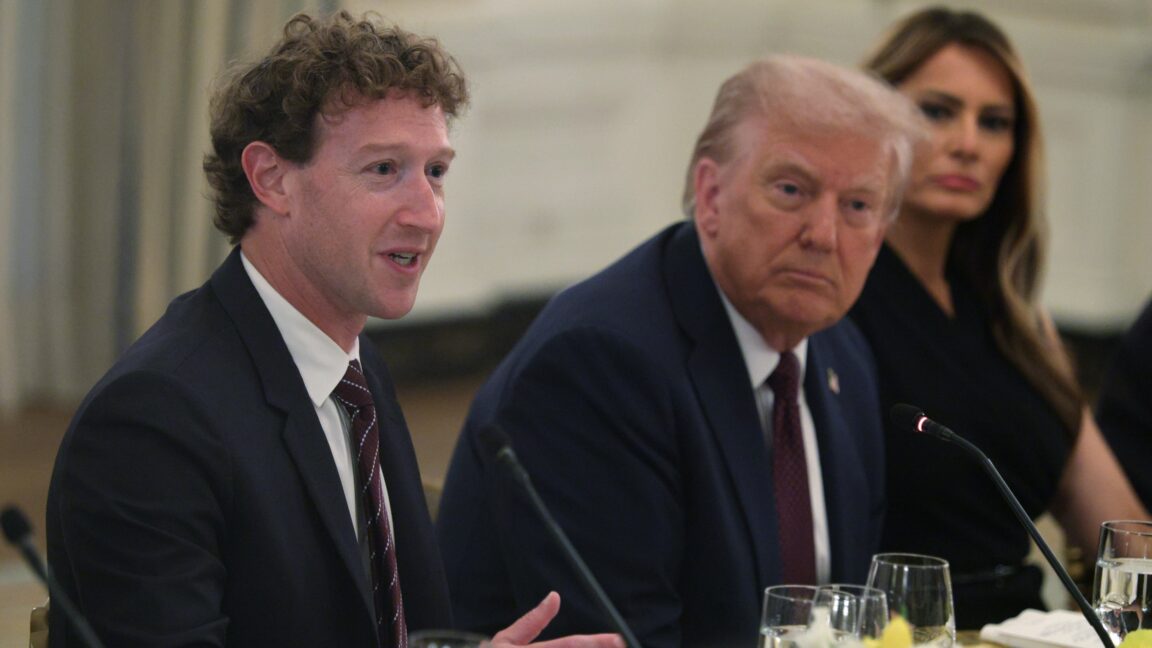Meta Removes Group Citing Policy Violations After Trump Administration Pressure
Meta removed a group for violating its coordinated harm policies, a decision influenced by pressure from the Trump administration, highlighting content moderation and political dynamics.
Overview
- Meta, the social media platform, removed a specific group from its services, citing violations of its internal policies.
- The primary reason for the group's removal was its engagement in activities that breached Meta's policies against coordinated harm.
- This action by Meta was taken under direct pressure and influence from the Trump administration, impacting content moderation decisions.
- The incident highlights the complex relationship between major tech companies and government entities regarding content regulation.
- It raises questions about the autonomy of social media platforms in enforcing their rules versus external political intervention.
Report issue

Read both sides in 5 minutes each day
Analysis
Center-leaning sources frame this story by portraying the removal of the ICE-tracking group as an authoritarian move by the "Trump Regime." They use highly evaluative language, characterizing ICE as "secret police" engaging in a "campaign of terror" and drawing parallels to "authoritarian countries" and China. The narrative emphasizes alleged ICE abuses to justify the tracking group's existence, suggesting a "descent into fascism."
Articles (3)
Center (3)
FAQ
Meta removed a Facebook group that was alerting members to the presence of Immigration and Customs Enforcement (ICE) agents in Chicago, citing violations of its coordinated harm policies under pressure from the Trump administration.
The Trump administration, through the Department of Justice, pressured Meta to remove the group targeting ICE agents as part of its campaign supporting mass deportation efforts and to combat anti-ICE content.
The incident highlights a complex dynamic where government entities exert pressure on social media platforms that can influence content moderation decisions, raising concerns about the platforms’ autonomy and political interference.
Meta’s CEO Mark Zuckerberg previously expressed regret over yielding to government pressure, particularly during the Biden administration's push for moderating COVID-19 content, and stated a commitment not to compromise content standards under pressure from any administration.
Meta acknowledges its content moderation sometimes errs by removing harmless content or unfairly penalizing users, making it difficult to perfectly balance safety and free expression, especially under heightened political and public scrutiny.
History
- This story does not have any previous versions.


